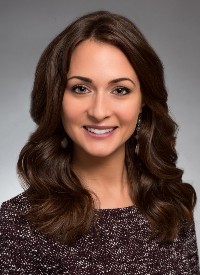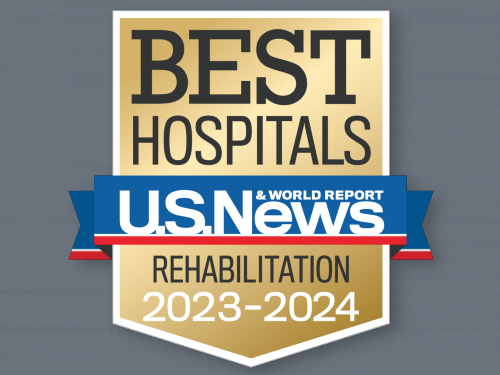The neurobehavioral program at TIRR Memorial Hermann provides unique services to patients recovering from acquired brain injury (ABI).

The neurobehavioral program offers rehabilitation services in the least restrictive manner possible for patients with ABI, explains Lindsey Harik, PhD, neuropsychologist and program manager.

“Being able to engage in a full, aggressive rehab program is incredibly necessary for a good recovery following these injuries, which can be very challenging due to the nature of the behavior,” Dr. Harik says. “We are uniquely poised to be able to allow patients to participate in a really rigorous program despite these challenging behaviors that they come to us with.”
The ability to engage in a rigorous rehabilitation program also leads to positive outcomes for patients, according to Drs. Falco and Harik. When patients begin the program, they are often under physical restraint and are taking multiple medications that were previously “necessary but are probably hampering their ability to participate in their rehab programs and make functional gains,” Dr. Harik notes. “By the time they leave us, they’re free of the vast majority of those things. I think that's a really important thing that we do.”
Patients who are treated within the neurobehavioral program receive nonpharmacologic therapies that allow them to better engage in their recovery.
“That’s a major aspect of the philosophy of our program; it’s quite a bit different than any similar programs,” Dr. Falco says. “We do such amazing things on the nonpharmacologic side of things that it gives me, as the physician, great freedom to optimize the medications in a way such that it facilitates cognitive recovery and functional recovery rather than just having to use a variety of medications that are going to impair them cognitively or sedate the patient.”
Clinicians in the neurobehavioral program are continually developing new methods to improve rehabilitation services for their patients. Recently, the team developed a behavioral rating tool that helps objectively assess changes in patient behavior. The TIRR Memorial Hermann researchers shared this tool with other collaborating facilities in the hope of improving patient assessment and ultimate treatment outcomes.
Another innovative evaluation method used within the program is the behavior observation tool. This tool allows staff members to chart and describe patient behavior along with the time the behavior was observed, the location where it occurred, the individuals who were present, the intervention used to manage the behavior and the outcome of the intervention.
“This is incredibly important because they can do this charting 24 hours a day. We can’t effectively treat a behavior that we don’t know is happening or that we don’t understand what might be the antecedent or the trigger for that behavior,” Dr. Harik explains. “Being able to understand what’s been trialed across different staff members and what’s effective helps us become really lean in terms of developing an effective behavior plan for treating these behaviors. As far as we are aware, that is unique to our facility.”
The stars of the neurobehavioral program are the frontline staff—the nursing staff and therapists—who spend hours with these patients every day, according to Dr. Falco. “It wouldn’t be possible to have such a successful program working with this challenging patient population without their dedication and their expertise,” he says. “Our patient care technicians [PCTs] do amazing things that are so far above their pay grade at times. They’re just essential to the success of the program. And I couldn’t be prouder of the amazing group of PCTs that we have working in the program.”
The neurobehavioral program treats from one to three patients at a given time, with a focus on patients for whom the primary driver of challenging behavior is related to acquired brain injury, and not primarily psychiatric in origin. A combination of innovation and dedicated staff have contributed to very positive outcomes for these patients, according to Drs. Falco and Harik.
“We are rather proud of how successful our patients are, not only in terms of their rehab outcomes but their discharge disposition,” Dr. Falco notes. “We’re discharging a very high percentage of our neurobehavioral patients back to home and back to the community. They’re doing remarkably well functionally; the vast majority are highly ambulatory at discharge.”
“We hear from folks who just express that, when they got here, they thought there would be no way that they would be able to bring their loved one home,” Dr. Harik adds. “And in many cases, in just in a matter of a few weeks, they feel ready to do that, and that they can do that safely. We give them the opportunity to do something that they never even thought was going to be an option.”
